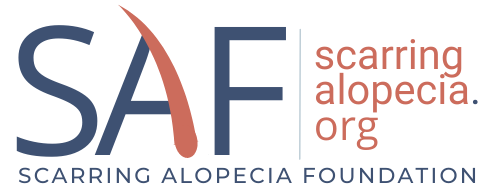
 We don’t know exactly what causes this condition and we aren’t sure what the best treatments are for this condition.
We don’t know exactly what causes this condition and we aren’t sure what the best treatments are for this condition. 
The Scarring Alopecia Foundation (SAF) wants to help erase these phrases from what is said about scarring alopecia.
With new technologies that have recently emerged, the only thing keeping SAF from reaching this goal is funding for research. Research is the key to gaining a better understanding of the causes and best treatments for scarring alopecia. Studies range from basic science experiments done in laboratories to clinical trials that evaluate treatment or test various parameters in patients affected by a condition. These studies are imperative to furthering our knowledge about scarring alopecia.
SAF is committed to making scarring alopecia better for patients, figuring out real answers for why these conditions occur, what the best treatments are, and how we can prevent scarring alopecia from occurring in the first place. Sadly, unlike psoriasis, eczema, acne, and other much more common dermatological conditions, scarring alopecia affects fewer people. Yet, scarring alopecia is not so uncommon that they are “orphan conditions”. Unfortunately, this places scarring alopecia in a difficult spot for research funding: too prevalent to be eligible for government funding, not common enough to attract robust pharmaceutical industry funding. SAF members who support the research mission provide the ability for investigators across the country to conduct basic science research as well as clinical trials.
Clinical trials and studies play an instrumental role in the development and approval of new treatment options. People who are willing to participate in clinical trials and research studies can benefit personally, while potentially furthering important cicatricial alopecia research and therefore helping others affected by scarring hair loss. This page will be updated regularly to keep SAF members aware of active research projects.
